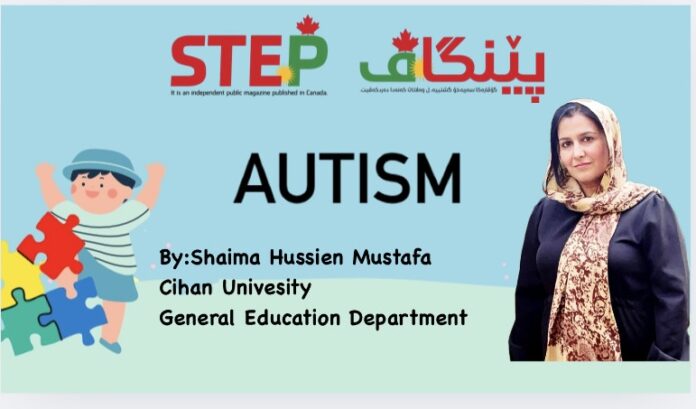By: Shaima Hussien Mustafa
Cihan Univesity
General Education Department
Autism is a neurodevelopmental disorder, not a disease. It affects how a person interacts socially with others, and it also involves repeated and specific behavioral patterns. This disorder usually appears in children between the ages of two and three, and the severity of the condition varies from person to person. This is why it’s called autism spectrum disorder. I will provide a brief summary of this disorder, even though the topic is vast and complex. I have personal experience with this condition because I have a son with autism spectrum disorder.
Symptoms:
A person who has autism will have trouble responding when called by their name, and you’ll find that they spend time alone, often preferring solitary play and avoiding interaction with others. They love to live in their own inner world. We also see that they have delays and problems with speech, or they don’t speak at all.
They have trouble holding eye contact, expressing emotions on their face, or reading other people’s facial expressions.
Sometimes, they may engage in aggressive behavior, such as breaking things. You may also notice that they repeat certain words without knowing how to use them. It’s hard for them to understand questions or normal instructions.
Behavioral patterns:
They have repeated behaviors, like hand flapping, spinning in a circle, and walking on tiptoes.
They may exhibit harmful behaviors, such as biting or harming themselves.
They also have extreme sensitivity to sensory stimuli such as light, sounds, and touch.
Causes:
The exact cause of this disorder is unknown. There are some factors that contribute to the development of this condition, like genetic factors.
Genetic factors are believed to play a role in the development of autism, though some cases may occur spontaneously.
Research suggests that environmental factors, such as complications during pregnancy, viral infections, medications, pollutants may contribute to the development of the disorder or increase its risk.
However, extensive studies have found no causal link between vaccines and autism.
Treatment:
Based on my experience with my child, who has autism spectrum disorder, I don’t recommend using medication, as he did not respond to it positively. It made his condition worse. To date, there has been no known cure for autism spectrum disorder. However, if individuals with autism also have intellectual disabilities, seizures, or other developmental disabilities, medication may be necessary to alleviate or treat those symptoms.
The most important treatment that my child responded to, and that most children with autism benefit from, is early diagnosis and intervention. These interventions help improve behavior, build social skills, and enhance language abilities. The earlier a child is diagnosed and receives intervention, the better their chances are for improvement and treatment.
With extensive training, I was able to help my child develop the skills needed for daily tasks, like eating independently, changing his clothes and maintaining his personal hygiene, such as washing his hands and feet. I know families with children who have autism spectrum disorder, and they often suffer a great deal, especially the mothers. The family should remain strong, united, and supportive of the child, never giving up or claiming that it’s too late for improvement. There is always hope. To every mother out there, you are strong and I admire your resilience. Never say, ‘I didn’t do enough,’ because you’re doing your best and trying all you can. Don’t blame yourself. You are there for your child, and they are lucky to have your support. Every child with autism spectrum disorder deserves to be understood and respected.





